- Home
- Advertising
- Before Dr. Seuss was famous he drew these sad, racist ads ... and then totally changed his mind
Before Dr. Seuss was famous he drew these sad, racist ads ... and then totally changed his mind
In his political cartoons Seuss inveighed against the Japanese during World War II; he drew them buck-toothed and squint-eyed.

This was an ad for Flit, a brand of insect repellent.
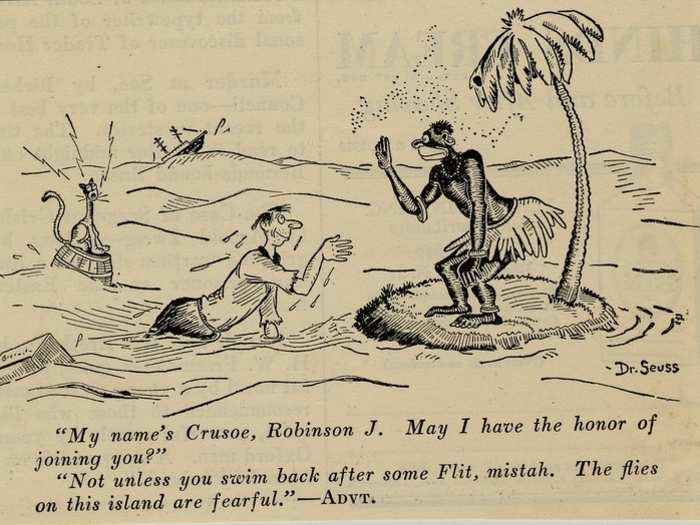
Many of these drawings are from the collection of the Springfield Library and Museums Association.
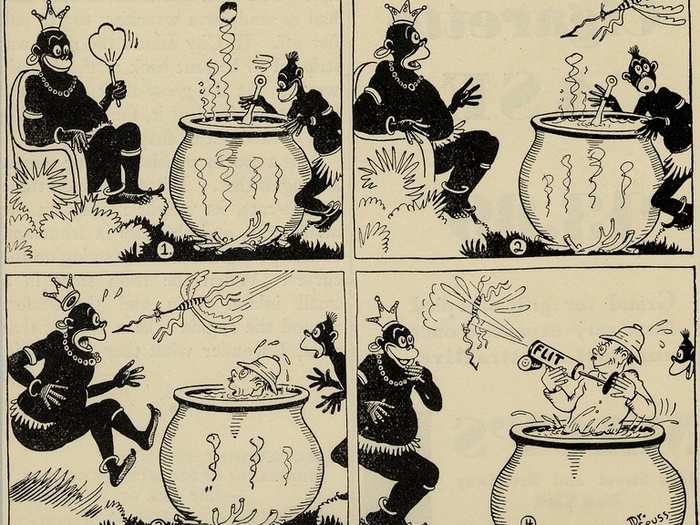
During the war, Seuss defended his anti-Japanese view, according to his biographer Richard H. Minear ...
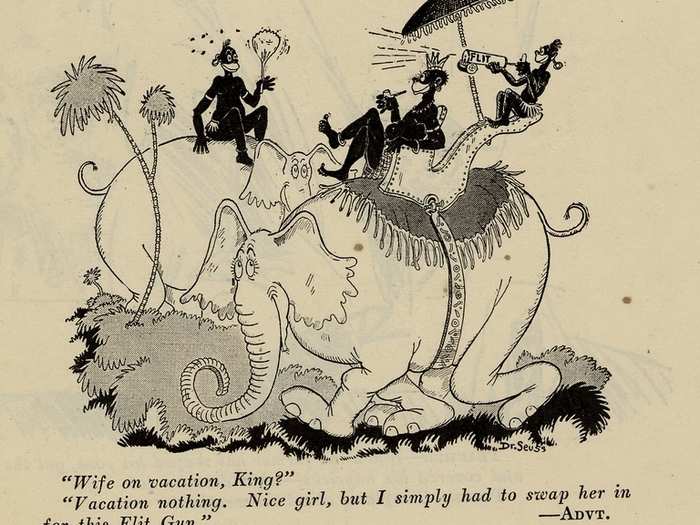
"... Right now, when the Japs are planting their hatchets in our skulls, it seems like a hell of a time for us to smile and warble: 'Brothers!' It is a rather flabby battle cry. If we want to win, we’ve got to kill Japs, whether it depresses John Haynes Holmes or not. We can get palsy-walsy afterward with those that are left," his biographer quotes Seuss as saying.
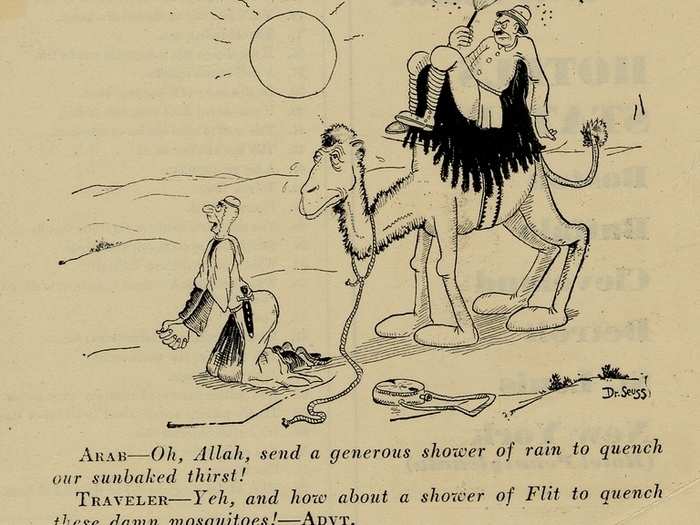
Later in his career, Seuss mended his ways and drew anti-racist cartoons. (This isn't one, obviously.)
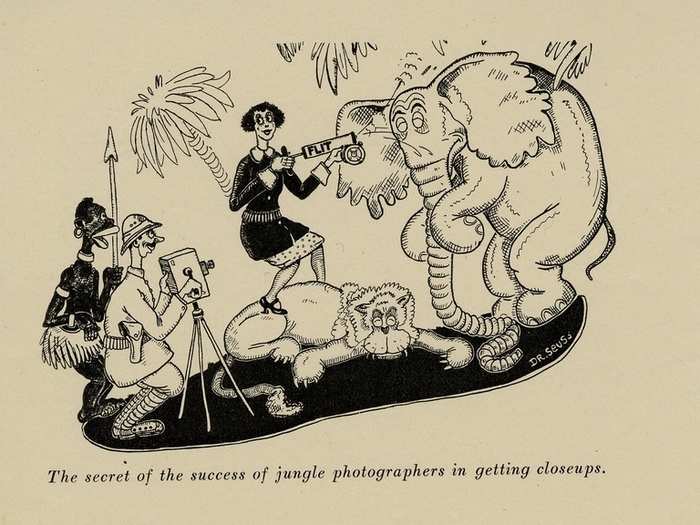
He also expressed regret for his anti-Japanese views, according to filmmaker Ron Lamothe, who made "The Political Dr. Seuss."
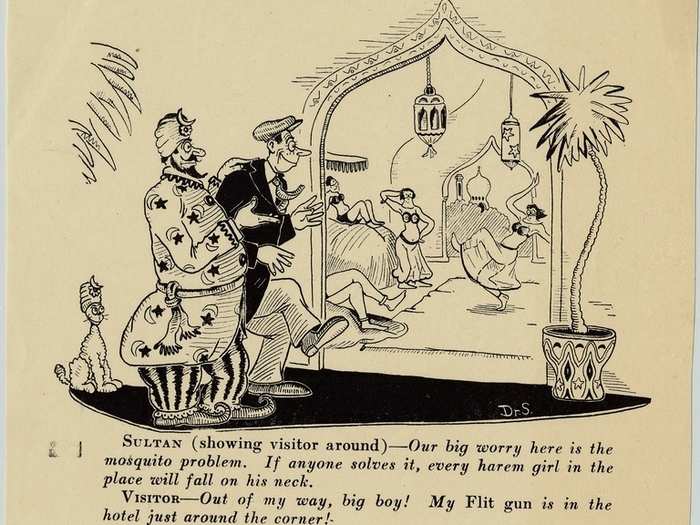
"He was regretful about some of his cartoons for PM and some of the propaganda work he did for the Army Signal Corps," Lamothe said.
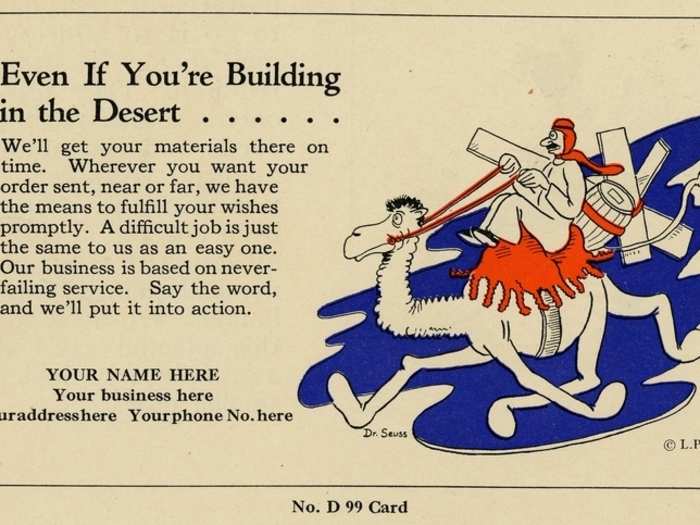
LPC Co. was a printing company targeting contractors for promotional business.
"I do think the fact he dedicated Horton Hears a Who — a parable about the American postwar occupation of Japan — to 'My Great Friend, Mitsugi Nakamura of Kyoto, Japan,' says something of his changing attitudes toward the Japanese," Lamothe said.
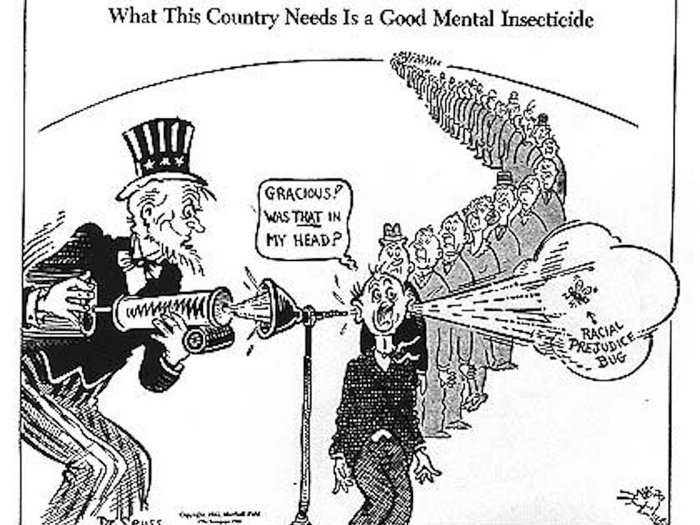
You can see in this cartoon that Seuss changed his mind about racial hiring quotas by the end of the war.
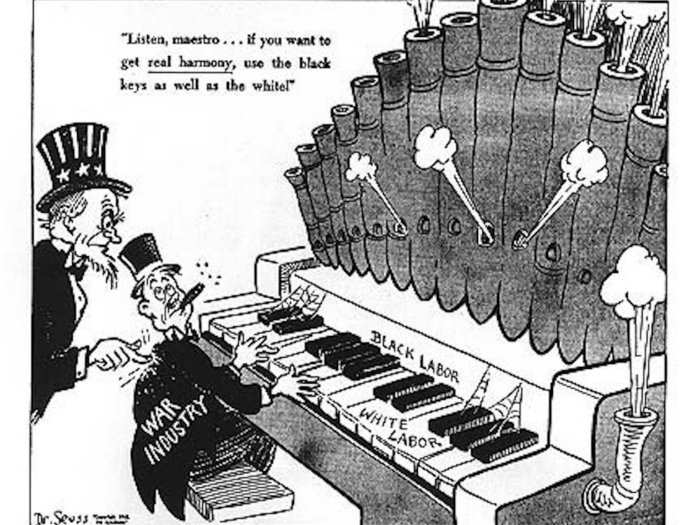
Popular Right Now
Advertisement